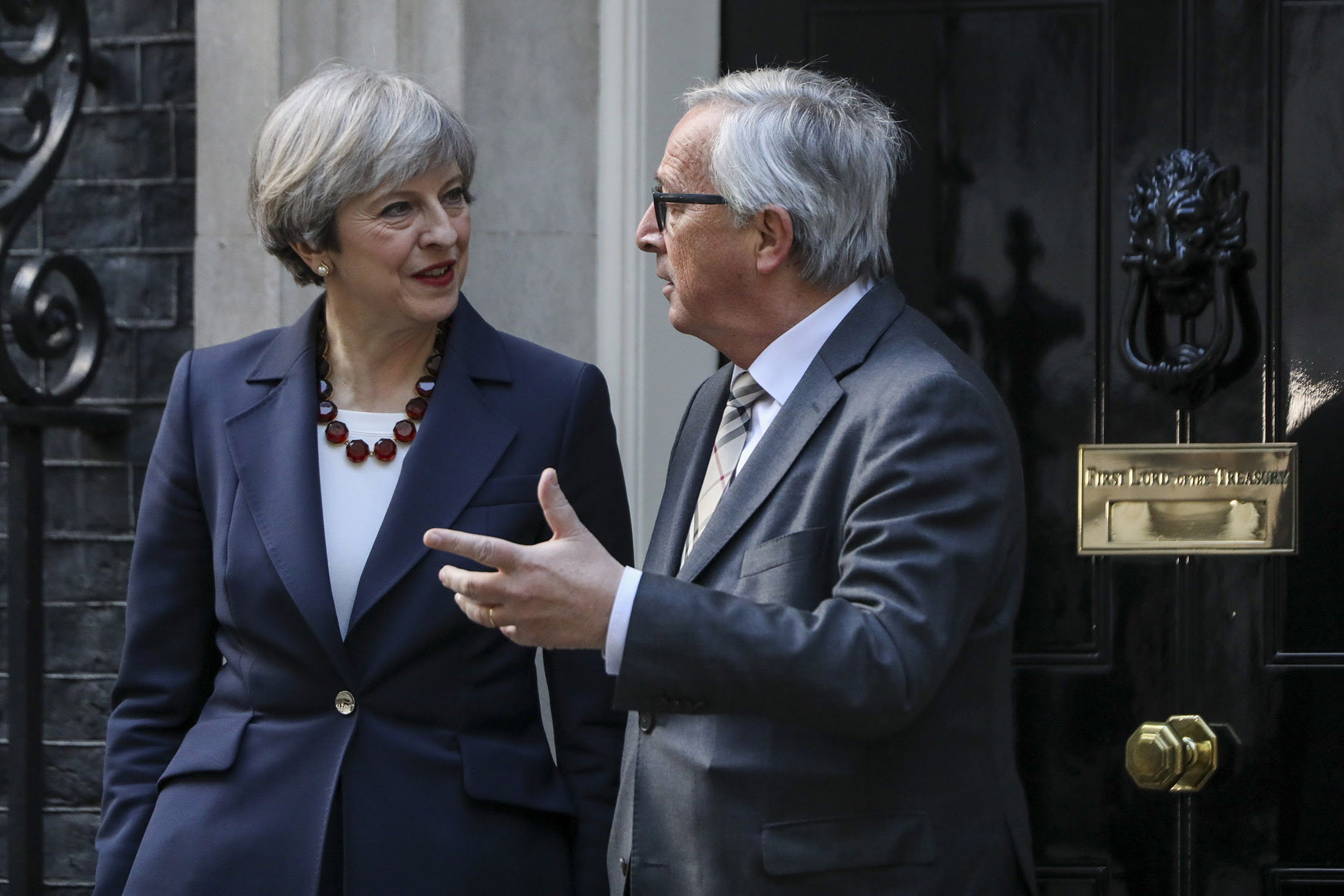Deadly serious
What kind of say should British lawmakers have on the final Brexit deal?
That question has dominated Westminster this week as the unpredictability of the next 17 months continues to shape British politics. Meanwhile, the lack of progress in even fixing dates for further negotiation rounds is raising eyebrows on both sides of the English Channel.
Members of Theresa May’s Conservative Party said on Thursday that they would consider rebelling against the government if it’s necessary to ensure Parliament gets a binding vote on the final deal. “We are deadly serious,” Nicky Morgan, who leads the influential Treasury Select Committee, said in the House of Commons. Ministers have promised verbally that members of Parliament will get a vote on the outcome of talks, but are resisting calls to codify this commitment in law.

An additional complication comes with the prospect that anti-Brexit campaigners are considering a legal challenge against the government over the lack of a binding vote, according to a report in the Times.
Of course, the government has real concerns that giving lawmakers the opportunity to change the Brexit deal so close to the departure day (March 29, 2019, lest you forget) could blow the whole thing out of the water. Any amendments they make would have to be agreed by the 27 other EU governments and the European Parliament. Any extension to the U.K.’s EU membership would need the consent of all 27 other national leaders.
The sensitivity perhaps explains Brexit Secretary David Davis’s conflicting messages. On Thursday he said lawmakers would be given a “meaningful vote” on the deal, which he expects to be struck in good time before departure. A day earlier he said negotiations could could go to the wire. A high-pressure game of brinkmanship could deny Parliament the chance to vote before it’s too late, and after the European Parliament gives its consent, he said.
The Brussels assembly, which has a veto over the entire process, would almost certainly demand U.K. lawmakers vote before it does, for fear that Britain would make amendments it wasn’t happy with.
This is all part of the reason the EU’s chief Brexit negotiator, Michel Barnier, insists any deal be wrapped up a full six months before Brexit day. But that means talks need to move onto the possible transition period and future trade arrangements within the next few weeks.
When May left a summit in Brussels last Friday there were eight weeks for further negotiation before a December gathering of EU leaders, at which she urgently needs a breakthrough. In the past week there have been no talks. Dates for further rounds proposed by the EU haven’t been confirmed by the U.K.
As Barnier is fond of saying, the clock’s ticking.
Brexit Latest
Method in the Madness | The EU reiterated its stance that the U.K. must sign up to a methodology for calculating the Brexit financial settlement. “We need a method to be able to reassure the 27 of the solidity of the U.K.’s guarantees,” Stefaan De Rynck, an aide to Michel Barnier, said in London on Thursday.
Brexit Chances | “There are many opportunities in the U.K. even on its own,” Hitachi Ltd. Executive General Manager Yasuo Hirano told Bloomberg News, when asked whether the Japanese company was planning any measures to cope with the U.K.’s planned withdrawal from the EU. “We are not particularly concerned.”
Scotland Worries | Scottish First Minister Nicola Sturgeon has asked Theresa May to clarify her plans for a Brexit transition deal, according to an interview in the Financial Times. Sturgeon says she is concerned that businesses will soon start implementing contingency plans that would be “deeply damaging” for the Scottish economy.
Ford Losses | Ford Motor Co. reported an $86 million loss in Europe during the three months ending September, marring an otherwise better than expected quarter. “That decline is almost fully explained just by Brexit effects,” Chief Financial Officer Bob Shanks said on Thursday in Dearborn, Michigan.
Call for Certainty | O2, the U.K.’s second-biggest wireless carrier, said uncertainty over Brexit’s timing and terms threatens to suppress business investment. “We operate in a market which requires multi-hundred million, billion investment and you need long-term certainty,” said O2 head Mark Evans.
Getting Through | A hard Brexit would be “economically manageable,” Bundesbank board member for banking supervision Andreas Dombret writes in a column for Germany’s Focus magazine. He warned, though, that banks in Germany do need to prepare for a a disorderly U.K. exit.
Studying Change | The U.K. government is considering offering loans to EU students as part of the Brexit deal in an attempt to encourage them to continue studying at British universities, the Times reports.
Two for One | The European Parliament voted on Thursday to adopt legislation designed to breathe life into the market for debt securities backed by mortgages and car loans, Bloomberg’s John Glover reports. The securitization rules will be put into British law as the nation leaves the EU, and depending on the terms of the government’s EU Withdrawal Bill, there will then be two separate but identical regimes running in parallel.


Comentarios
Publicar un comentario